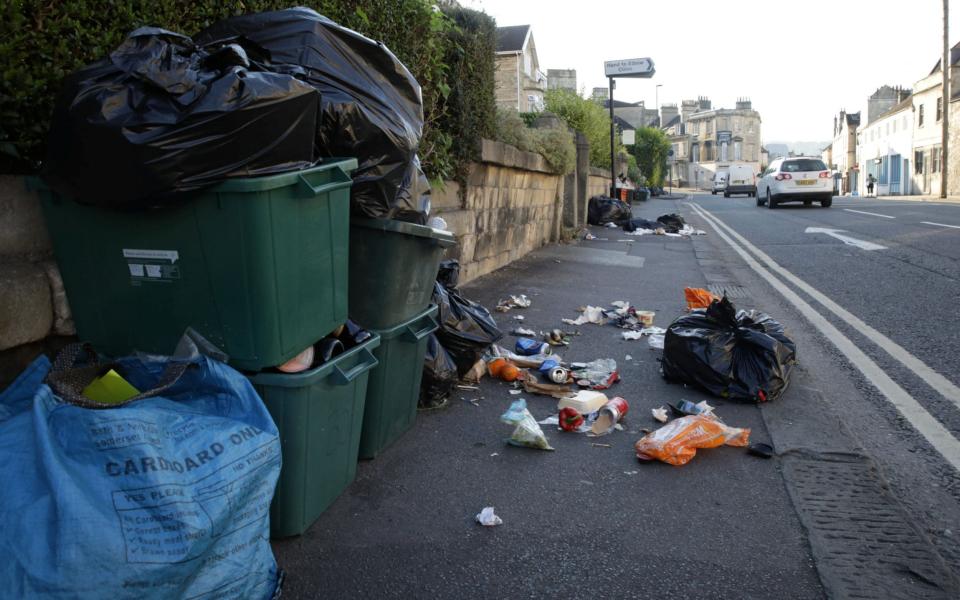Councillors call for new rules to stop rise of 'party homes' spreading around Bath

Bath is being ruined by the spread of Airbnb’s, local councillors have warned, as they call for new rules to stop the rise of ‘party homes’ disturbing quiet neighbourhoods.
An increasing number of large properties are being hired by revellers from the short-term home rental company to be used as venues for stag and hen parties, it has been claimed.
There are at least 90 apartments being let for such occasions in the Georgian city, with locals complaining about the high levels of noise and litter produced by the occupiers.
Currently, local authorities do not have the power to close Airbnb properties because they do not hold official licences.
But there have been growing calls for a statutory registration scheme to provide enforcement officers with the tools needed to target and restrict ‘problem’ houses.
David Wood, a Liberal Democrat Councillor for Mendip, Bath, is one of many pressing for tighter regulations to combat the problem.

He said: “While many Airbnb's are run responsibly, there are some that cause problems for their neighbours in terms of noise and rubbish.
“Because Airbnb's aren't licensed, like many local authorities up and down the country, Bath & North East Somerset Council has no special powers to restrict them or deal with the problems they can cause.
“We want to see the government change the rules on Airbnb's so they can be controlled better and will be lobbying for this.”
Airbnb, which is valued at about £28.2 billion and operates in nearly 200 countries, is soon expected to overtake Europe's biggest hotel chain in terms of number of bookings.
However, in several major European cities, most notably Amsterdam, entire home rentals have been limited to 60 days a year in order to prevent the city becoming overrun by tourists.
A new short-term letting regulation came into force in London last month, which relies on people who rent their property for over 90 days in a year to register with their local council.
Local Residents Association’s in Bath support such changes as they warn of an erosion in community cohesion if the current legislation stays the same.

Patrick Rotherham, a member of the Federation of Baths Residents Association, told The Telegraph: “In Bath in particular there are a number of large houses being converted into short term rentals offering on average 15-20 beds to guests who stay in them. These can cause a lot of noise and nuisance in the neighbourhood, mostly in the form of late night parties.”
“It is like living next to a small or unregulated hotel with people coming and going, frequent noise and a lot of rubbish that is often put out at the wrong times for collection. There are also quite a lot of bottles left out with food rubbish in them,” he added.
Airbnb has said there is 'no evidence' its guests are negatively contributing to litter in Bath.
A spokesperson said: “Airbnb is built on the principles of making communities stronger, and promoting healthy, sustainable travel.
“Guests using Airbnb generate less waste, reduce energy and water consumption, and generate fewer greenhouse gases than guests staying in big hotels, according to expert analysis.
“The majority of guests say they choose Airbnb to experience life like a local, 94% of hosts say they incorporate green practices into hosting, and hosts typically provide guidance and house rules on matters like recycling, composting and waste disposal.”
